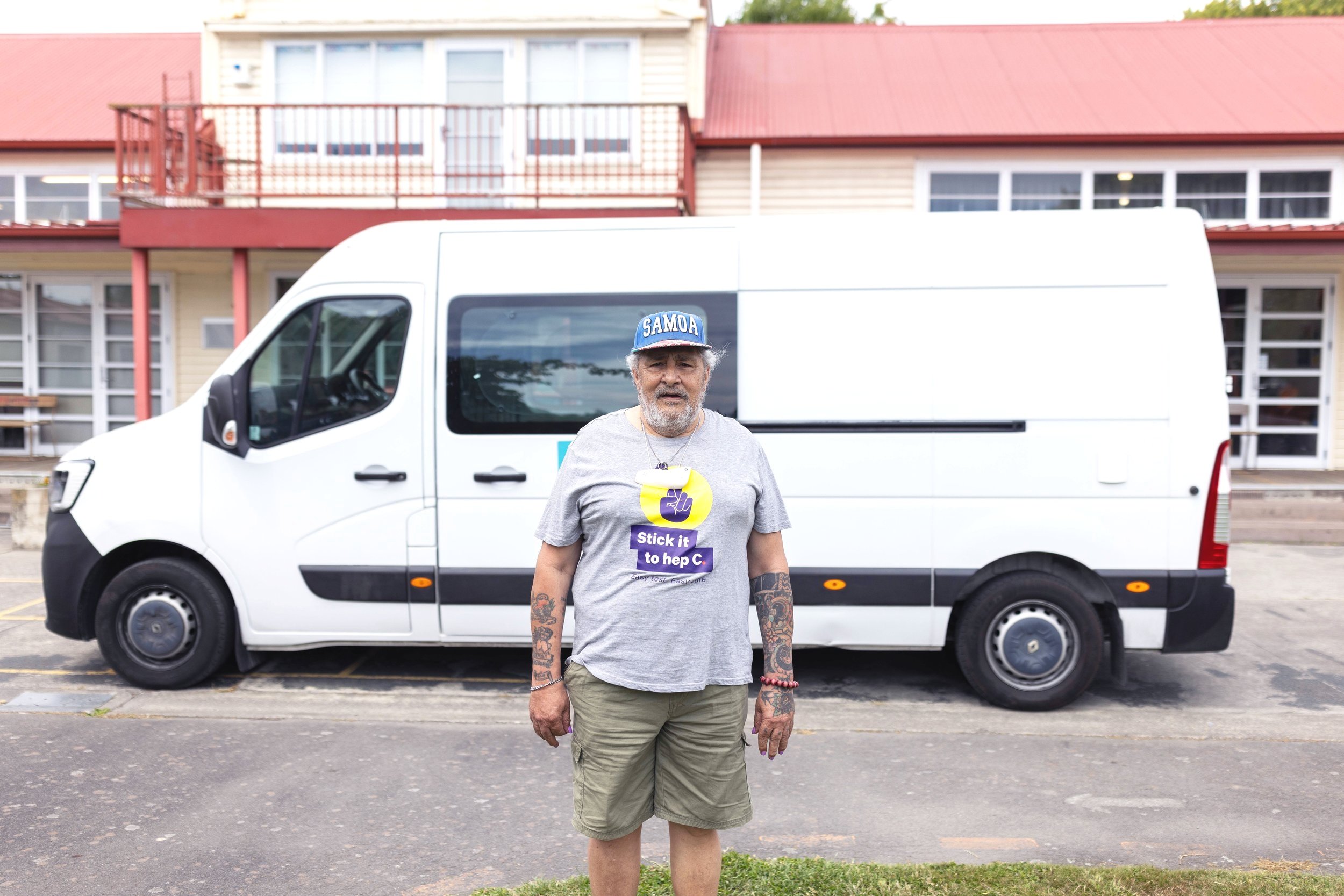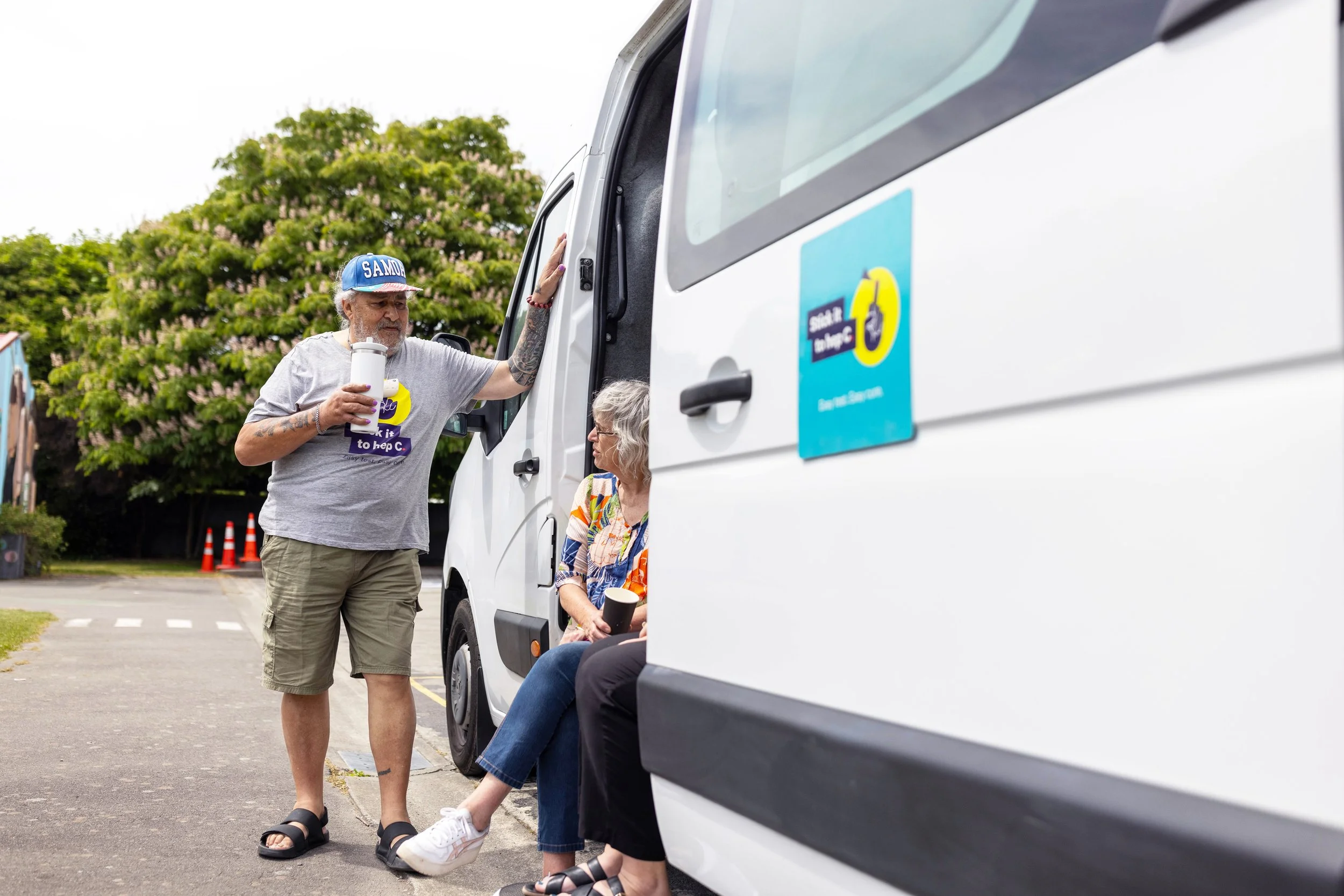
Our goal is to meet people where they’re at
Overview
Drug Injecting Services in Canterbury Trust (DISC) are Aotearoa’s Leading Harm Reduction Service.
DISC is at the forefront of harm reduction in Aotearoa, offering the most comprehensive range of health and harm reduction services in the country to enhance the health and well-being of people who inject and use drugs.
We provide world-leading harm reduction practices and are one of the three specialist providers of the New Zealand Needle Exchange Programme, operating seven needle exchanges across Te Waipounamu and mobile services on the West Coast.
We offer hepatitis C screening and treatment across Te Waipounamu and Te Tai Tokerau, alongside a national drug checking service with regular, ongoing clinics in Ōtepoti Dunedin, Ōtautahi Christchurch and Te Whanganui-a-Tara Wellington and periodic clinics in other locations.
We also provide general health services at two of our needle exchanges. Our national pharmacy needle exchange programme supports 200 pharmacies to distribute harm reduction equipment nationwide.
We also partner with several Hauora Māori services and community-based providers to expand our community reach.
As a peer-based organization, we advocate for people who inject and use drugs, working to eliminate stigma and foster harm reduction knowledge. We provide a safe, non-judgmental space and are trusted as a valuable source of support, information, and advice within our community.
We’re trusted & provide a safe, non-judgmental space.
Compassionate and cost effective approach to public health
$6.79 in benefits for every $1 spent.
In 2021, the national needle exchange programme:
cost $5.88 million to run
delivered estimated benefits of $39.9 million through reducing the burden and its associated costs on the NZ health system.
estimated benefits are the costs associated with HIV, hepatitis B and C infection, and injection-related injuries, if the service wasn’t available.
This equates to $6.79 in benefits (including prevented future costs) for our public health system from every dollar spent on the programme.
Our approach to harm reduction
We understand…. we are a peer-led community-based organisation. Most of our staff and volunteers have either current or past experience of injecting or using drugs.
When tangata whaiora come into our services we can engage in deeper conversations about their needs and build trust.
Harm reduction is a compassionate and practical approach to public health that focuses on reducing the harm associated with drug use, while respecting everyone’s journey. It doesn’t demand that people stop using drugs but instead provides support and resources to help people make safer choices.
In the context of drug use, harm reduction offers a non-judgmental way to reduce risks—whether through needle exchange, safer injecting practice, drug checking or accessible hepatitis C screening and treatment.
Our goal is to meet people where they are at, with care and understanding, to support their health and well-being.
Harm reduction means
-
Policies, programmes, and practices that aim to minimise negative health, social and legal impacts associated with drug use, drug policies and drug laws. Specifically, we seek to reduce the negative impacts on people who use drugs, their whānau and the wider community. Harm reduction is grounded in human rights and social justice. It focuses on positive change and on working with people without judgement, coercion, discrimination, or requiring that they stop using drugs as a precondition of support.
-
We accept that drug use will always happen and people who use drugs have rights and deserve to be treated with respect and in a judgement free way. The DISC Trust supports clients through the provision of clean injecting equipment, advice and education on safe injecting practices, information on relevant local services, access to naloxone, Hep C treatment and general health services, and drug checking. If you’re going to use, then we want you to know how you can use drugs as safely as possible so you can reduce the potential associated harms that come with drug use as much as is realistically possible.
-
"Nothing about us without us" communicates the idea that no policy should be decided by any representative without the full and direct participation of members of the group(s) affected by that policy.






